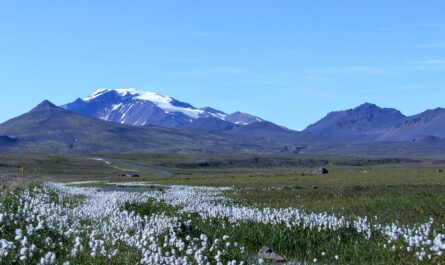To travel safely and enjoyably through Iceland, you need to be ready for its unique landscape and unpredictable weather.
Consider the following advice in this regard:
- Be mindful of the weather: the climate in Iceland is prone to sudden and unanticipated shifts, so it is essential to keep up with the latest weather forecasts and be ready for anything. Bring along some gear that is both warm and waterproof, in addition to a sturdy pair of hiking boots.
- Bring along a first aid kit: Because the terrain in Iceland’s wilderness can be challenging, it is a smart idea to bring along a first aid kit that has the essentials, such as bandages, disinfectant, and pain killers.
- Respect the environment: Because the natural environment of Iceland is delicate, it is essential to remain on trails that have been designated for foot traffic, to refrain from disturbing the local wildlife, and to not leave any litter behind.
- Take extra precautions while driving on Iceland’s roads, particularly during the winter months. If you rent a car, you are responsible for checking the road conditions and abiding by all regulations pertaining to driving. Also, double check that you are well-versed in the norms of the local traffic and that the conditions of the roads are satisfactory. Also, before you start driving, make sure that you are comfortable with the vehicle you will be using because many of the automobiles in Iceland come with unique characteristics, such as four-wheel drive or studded tires in the winter.
- Because Iceland is a rural country with limited cell phone coverage in some regions such as the central highlands, it could be a good idea to have a charged satellite phone or a personal locator beacon in case you get up in a situation where you need assistance but do not have access to a mobile phone. In most areas mobile phone will do fine.
- Take care of your health: In Iceland, there is an abundance of freshwater resources, and the water is, for the most part, unpolluted. You can drink the water from the tap almost everywhere in Iceland; you can even drink the water straight from fresh water creeks in the mountains, but you should use caution. Be careful to bring any necessary medication with you and drink enough of water throughout the day.
- Be mindful of your surroundings; the Icelandic wilderness, while stunning, can also be perilous, especially in the evenings and early mornings. When you go exploring, be careful not to stray too far from the pathways that have been indicated.
- For important information and your safety, be sure to check out the Safe Travel website or download the app in advance. For traffic information use Traffic info and Met Office for weather forecasts and warnings.
You will be able to enjoy your trip to Iceland without worrying about your safety if you follow these suggestions and are well prepared. Overall, Iceland is a very safe country, and as an example, a recent study has placed Reykjavik, the only city in Iceland, atop the list of safest cities in the world.


